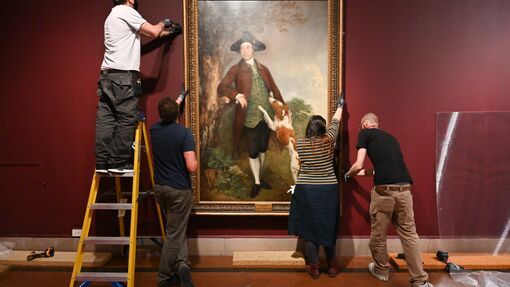
Arts and cultural organisations embrace challenge of climate change
Report showcasing how arts and cultural organisations are emerging as leaders and key collaborators in environmental sustainability.
Sustaining Great Art and Culture 2017/18, published today by Arts Council England and climate change charity Julie’s Bicycle, celebrates the successes of arts and cultural organisations in acting on national and international climate targets.
Over the past six years, organisations across the country – from Contact Theatre in Manchester and the Poetry Society in London, to the Middlesbrough Institute of Modern Art and Glyndebourne Opera House in Lewes – have taken great strides to improve their environmental practice.

[It’s] wonderful to see the collaboration between the Arts Council, Julie’s Bicycle and the creative sector succeeding in bringing together so many different cultural organizations to transform the public conversation on climate change, while tackling their own impact as well.
Christiana Figueres, Founding Partner, Global Optimism and Former Executive Secretary, UNFCCC 2010-2016
Energy efficiency and carbon reductions
The sector has reduced its direct energy consumption by 23% between 2012/13 and 2017/2018, with a corresponding reduction of CO2 emissions by 35% – an average annual reduction of 7%.
Organisations are using energy more responsibly, as well as upgrading lighting and installing onsite renewable energy sources – like Glyndebourne’s wind turbine, located just behind the opera house, which has generated the equivalent of 102% of the company’s annual electricity requirements since it was commissioned.
The ongoing drive to reduce energy use has also increased organisations’ financial resilience, with £16.5 million saved to date.

Benefits beyond reductions
Environmental sustainability is being linked to improvements in other organisational priorities, including team morale and strategic decision-making. 70% of organisations declare that involvement with the Environmental Programme has boosted staff wellbeing.
Arts and cultural organisations are also presenting artistic work that raises environmental awareness among their audiences. For example, Modern Art Oxford’s Future Knowledge exhibition combined artistic visual research with creative methods from design, ecology, biomimicry and systems thinking. Described as “dynamic and enriching”, the exhibition explored diverse perspectives and solutions for the environment.

New creative ecology
All of the above means that the arts and cultural sector is changing the way it goes about its business. New priorities, practices, skills and investment are contributing to a new creative ecology, which is driving demand for clean technologies, sustainable goods and services, greener waste solutions and the emergent circular economy.
The Lyric Hammersmith’s four-week staff and audience campaign in January 2018, #PlasticFreeLyric, generated many positive outcomes for the organisation – including replacing all single-use straws and removing all plastic bottles from sale in its bar.
Many organisations are also switching to clean energy providers or green tariffs, accelerating the transition towards a 100% renewable energy market.
with leadership, commitment and creativity arts and cultural organisations are delivering truly inspiring results
Nicholas Serota, Chair, Arts Council England, said: “In a time when society is tasked with taking unprecedented action on climate change, the Arts Council England commissioned 2017/18 Environmental Sustainability report makes for extremely encouraging reading. The report evidences that with leadership, commitment and creativity arts and cultural organisations are delivering truly inspiring results.”
Alison Tickell, CEO, Julie’s Bicycle, said: “This report shows how a deceptively simple policy – Arts Council England’s Environmental reporting requirements – can prompt big shifts. Hundreds of creative organisations are demonstrating how a sustainable cultural ecology can work. Environmental literacy is inspiring deeper connections between climate and social justice, investment and innovation, clean energy and new materials, empathy and biodiversity, the past, present and why we must shape the future.”
What’s Next?
To build on these successes we are now working with Julie’s Bicycle to accelerate impact and stretch ambition. This includes two new strands of work: The Accelerator Programme, which offers organisations resources and expertise to develop innovative ideas into deliverable projects for greater impact, and The Spotlight Programme, a targeted carbon reduction scheme for organisations with large infrastructures.













